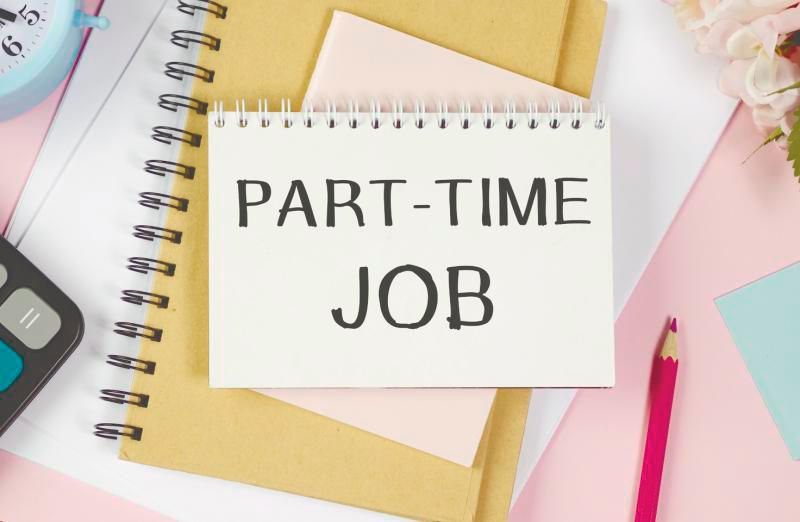Boss, is My Pay Fair?
- Vincent Eu
- Apr 28, 2024
- 4 min read
Updated: Apr 29, 2024
By Eu Jin Hau – March 01, 2024
KAJANG: We work hard, we contribute, but sometimes the numbers on our payslip simply don't feel fair. Workplace inequality isn't just about money. It's also about respect, opportunities, and making workplace better for everyone.
Photo Credited to HR Daily Advisor
According to East Asia Forum, the economic growth rate of Malaysia experienced a decline from 8.7% in 2022 to an estimated 4% in 2023. The question then comes, is this the only factor contributing to the income disparity among working individuals? Or are there additional factors that could contribute to income inequality?
Weekends Sacrificed, Pay Unmatched
Lee Yoke Chen (Left) shares her experience of her current work experience.
Lee Yoke Chen, a 25-year-old marketer, outlines her effort to achieve equal compensation and advancement while putting personal interests ahead of income. Lee recalls her problems at a previous marketing business, highlighting the mismatch between workload and income.
"I often worked overtime and weekends for client shoots," she says, pointing out the obstacles she encountered. Despite good opportunities for learning in her present work, Lee concerns about the fairness of her compensation, especially given the increased expenditures of commuting between PJ and KL.
Lee suggests government-mandated compensation ranges and performance reviews to close pay inequalities. She negotiates salary pragmatically, conducting research and engaging with her manager.
She advocates for employee empowerment, believing that many people are underpaid because they lack the confidence to fight for equal compensation. She highlights the need of action and transparency.
She points out the necessity of ongoing learning and networking as you advance in your career. "Self-improvement and networking are essential," she says, acknowledging the multifaceted nature of professional development.
Passion's Flame, Unequal Gain.
Jarod Tang Yaowei (Left) mentioned that young professionals deserve equal opportunities.
Jarod Tang Yaowei, a 24-year-old engineer, seeks fairness in his engineering career, valuing personal interest over income potential. He emphasizes the importance of passion, stating, "I wouldn't pursue something I dislike."
Jarod sees pay gaps, highlighting the need for hands-on experience beyond textbooks. "Universities set the stage," he says, "but self-directed learning builds the skills employers want."
Jarod struggles with workplace fairness due to increased job responsibilities and unequal pay. He believes clear job expectations and fair pay will solve these problems, so that employees will not have to do additional work outside of their job scopes.
He stresses the importance of fairness for new graduates, recalling an uncomfortable job interview. "Young professionals deserve equal opportunities," Jarod says, demanding salary transparency.
In addition, Jarod prioritises experience and networking to advance in his job, while keeping open to new opportunities. He also stated that sometimes when working in the same field for an extended period, the value and equity do not always justify the effort.
Pretty Design, Unequal Pay?
Aina Mazlin binti Mazlan (Left) says that discussing salary will lead to competition.
Aina Mazlin binti Mazlan, a 24-year-old graphic designer, provides insight into the dynamics of career choices and fair compensation in her field.
Aina emphasises that her choice to study was inspired by both financial opportunities and personal interests. "I considered income prospects and opportunities for freelance work," she says.
Regarding pay equity, Aina says, "What I'm doing in my company is within my job scope, so it feels fair." However, she stresses the importance of job expectations and compensation alignment.
“Know your value,” Aina says when discussing about negotiations of salaries and the need for proof to show your accomplishments and qualifications. She also advises against discussing salaries with coworkers due to potential risks. "It could lead to competition and an unhealthy work environment," she says.
Aina highlights the necessity of networking and continuous learning when handling career growth in the face of income disparities. "Having a strong network, keep learning and be open-minded are crucial," she advises, encapsulating the proactive mindset required for professional growth.
Rewriting the Paycheck Equation
Chloe Eu Shin Yee (Left) mentioned that clarity ensures fairness.
Chloe Eu Shin Yee, a 25-year-old tutor, spoke out about her journey in the educational area, shining light on the pursuit of fair pay and career progression.
Teaching, for her, isn't just a profession; it's a lifelong passion that has been deeply ingrained since her earliest memories. "Teaching has always been my calling," she shares with a sense of warmth, highlighting the profound impact education has had on her life journey.
To handle educational wage changes, Chloe promotes transparent compensation and advancement requirements. "Clarity ensures fairness," she states, promoting educator equity norms. She also said she doesn't feel awkward discussing salaries because she thinks everyone gets compensated depending on their corporate contributions.
With confidence and diplomacy, Chloe underlines the necessity of highlighting contributions during discussions. She thoughtfully remarks, "Recognition comes before discussion," underlining the significance of paying compensation.
To encourage equal opportunities, she emphasises self-improvement, stating, "Continuous learning and skill enhancement are important."
Healing for the Heart, Not the Wallet
Isaac Yeo Jun mentioned that performance-based pay could better acknowledge efforts.
Isaac Yeo Jun, a 25-year-old physiotherapist, discusses the ups and downs of his career path, what it's like to work in the healthcare industry, and his thoughts on fair pay and benefits.
Isaac's journey demonstrates that he is motivated by his excitement for his work rather than by financial gain. "I'm in this for the love of it," he acknowledges, emphasising the fundamental benefits of his job.
However, he acknowledges a significant salary disparity between Malaysia and the West, referring to the local undervaluation of healthcare workers. Despite being comfortable with his income, Isaac suggests commission-based incentives depending on patient outcomes. "Performance-based pay could better acknowledge our efforts," he suggests optimistically.
He finds salary discussions unpleasant and stresses the importance of balancing confidence and humility to prevent over negotiating. Isaac advocates for continuing education and skill development to improve his sector's recognition and reward to solve economic imbalances.










Comments